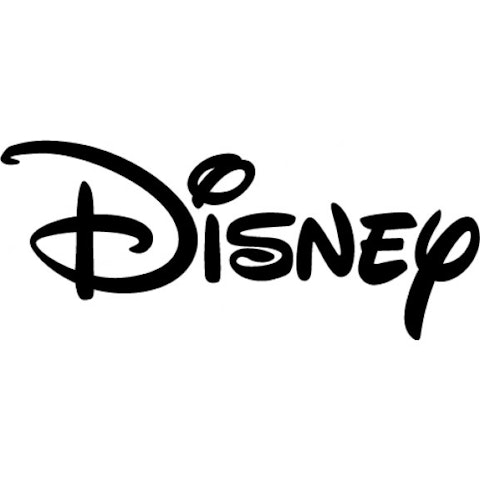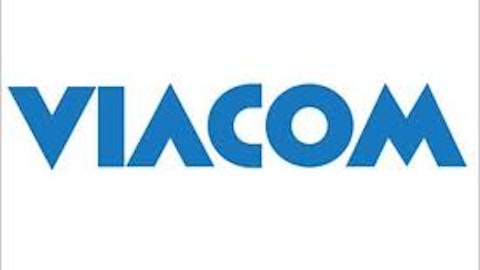The Walt Disney Company (NYSE:DIS) claims to be a place “Where dreams come true,” but how do they compare to their competitors as an investment? In an age where technology and piracy are making the media environment more challenging, some may expect Disney and its competitors to be risky investments.
Competition
Piracy may have stolen some of the icing, but the cupcake is still there. There are other companies competing against Disney as well, with News Corp (NASDAQ:NWS) and Time Warner Inc. (NYSE:TWX) being two of them. These companies all differ in size, all bringing a bit of diversity with them. The Walt Disney Company (NYSE:DIS), News Corp, and Time Warner have market caps of $117.2 billion, $73.4 billion, and $54.2 billion. This industry is also being challenged by online streaming services like Netflix, Inc. (NASDAQ:NFLX). There is plenty of competition, so what makes Disney more of a dream than a nightmare?
Partnerships
All of these companies have teamed up with some other solid companies. News Corp is partnered with Fox News, which continues to gain market share on its largest competitor, CNN. This is probably the largest partnership of News Corp (NASDAQ:NWS), despite its filmed entertainment, 27 local TV stations, cable network programming, etc. Time Warner Inc. (NYSE:TWX) has an impressive repertoire including HBO, CNN, TNT and the CW. Its partnership with New Line Cinema forms the largest filmmaker in the world. It also has a publishing branch of the company that includes companies such as People, Time, and Sports Illustrated. News Corp and Time Warner generate about 50% and 30% of respective sales from overseas.
The Walt Disney Company (NYSE:DIS) has not faltered with its partnerships either. It owns a 42.5% stake in A&E, the History Channel, and Lifetime Networks. Although it may not be a surprise that Disney also owns the Disney Channel, that is not where its ownership stops. The company also owns ABC and ESPN. About 75% of Disney’s sales come from within the U.S.
ESPN generates about 75% of cable network sales, and have dominated the sports sector for recent years. ESPN’s business model is impressive. In fact, about 65% of its sales are generated through affiliate fees. What competition does ESPN have? Because of its lengthy and expensive contracts with various sports leagues, there doesn’t seem to be any reason why they shouldn’t continue to dominate this industry for the foreseeable future.
Valuation
What kind of expense should investors expect to potentially fulfill their dreams? News Corp (NASDAQ:NWS) and Time Warner Inc. (NYSE:TWX) show free cash flow yields of 4.0% and 5.8% while The Walt Disney Company (NYSE:DIS)’s is 4.2%. Disney has the highest P/E of the three companies at 19.4, followed by Time Warner and News Corp at 17.6 and 12.6 respectively. Disney doesn’t seem to offer the best value, but let’s continue to look. Disney, Time Warner, and News Corp offer an earnings yield of 5.1%, 5.6%, and 8% respectively. All of these companies release dividends to its shareholders. Disney and Time Warner Inc. (NYSE:TWX) beat the industry average of 1.1% by .1% and .8% respectively. News Corp (NASDAQ:NWS) is well below the industry average with a dividend yield of just .5%.
Ok, so it becomes clear that The Walt Disney Company (NYSE:DIS) may not be the cheapest business to buy into, but how does it perform in comparison to Time Warner, the best company offering the best value, and News Corp, probably the most expensive of the three?
Performance
When looking at these three companies in comparison to the S&P 500, they have all done well. The difference is how they have done in comparison to each other. I compared on several different time frames including five years, one year, six months, three months, one month, and YTD. In the past one year, Time Warner Inc. (NYSE:TWX) and News Corp (NASDAQ:NWS) have outperformed Disney. In the last one month, the S&P 500 has outperformed all three of these companies. As for the other results? Well, all three companies have performed better than the S&P 500 with Disney holding the lead every time. The chart below shows just how dominant The Walt Disney Company (NYSE:DIS) has been over the past ten years.
Trends
Let’s look at one last area that investors might find useful. We all know that past results don’t dictate future performance. With that being said, none of us can predict the future, but we can look at the past. Disney and News Corp have both experienced nine revenue increases in the past decade while Time Warner has seen eight. Disney has seen earnings per share increase nine times, while News Corp (NASDAQ:NWS) and Time Warner Inc. (NYSE:TWX) have each seen seven increases.
As with dividends, The Walt Disney Company (NYSE:DIS) has not seen a decrease, but six increases in the past decade. In 2007, News Corp experienced a decrease in dividends, one that took three years to rebound from. So, despite its seven increases, there have been four years since 2007 with less of a payout than was made in 2006. Time Warner started issuing dividends in 2005 and has increased them annually since then.
The Foolish bottom line
As with all investments, this comparison comes down to what you want. Are you looking strictly at valuation? Strictly at performance? Or a balance of several things? To me, Disney has great partnerships which provide a durable competitive advantage, a solid valuation (but not the best), and a far better performance than its competitors. Given the full picture, The Walt Disney Company (NYSE:DIS) appears to be in the best position for investors of my mindset. What do you think?
Tyler Wofford has no position in any stocks mentioned. The Motley Fool recommends Walt Disney. The Motley Fool owns shares of The Walt Disney Company (NYSE:DIS).
The article Disney: Will Your Dreams Come True? originally appeared on Fool.com.
Tyler is a member of The Motley Fool Blog Network — entries represent the personal opinion of the blogger and are not formally edited.
Copyright © 1995 – 2013 The Motley Fool, LLC. All rights reserved. The Motley Fool has a disclosure policy.





